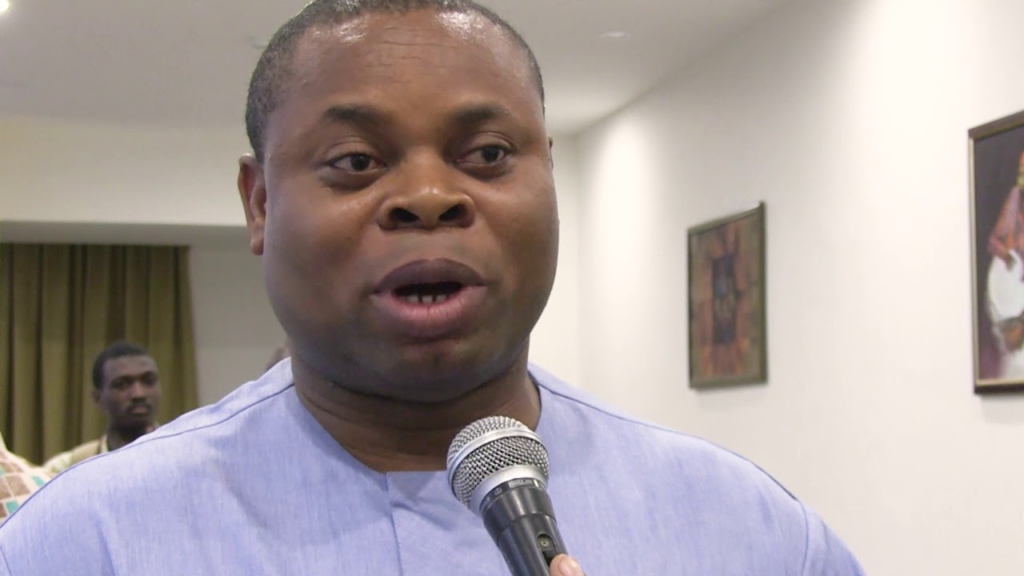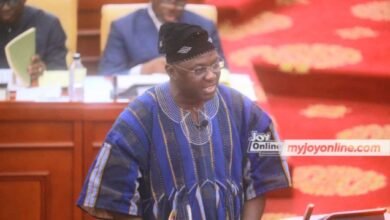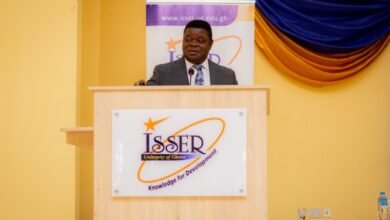Business News
Save Ghana from paying millions of dollars; probe Aker-AGM transaction – CSOs to Akufo-Addo
Civil Society Organisations (CSOs), Imani Africa and the Africa Centre for Energy Policy (ACEP) have welcomed the announcement by AGM Petroleum to relinquish its interest in the South Deepwater Tano (SDWT) block, which hosts one discovery, the Nyankom-1X, from a drilling campaign embarked on by AGM in 2019.

Civil Society Organisations (CSOs), Imani Africa and the Africa Centre for Energy Policy (ACEP) have welcomed the announcement by AGM Petroleum to relinquish its interest in the South Deepwater Tano (SDWT) block, which hosts one discovery, the Nyankom-1X, from a drilling campaign embarked on by AGM in 2019.
They therefore want more to be done regarding this matter and the whole issue of Aker Energy’s oil holdings in Ghana to ensure the rule of law and fair treatment for Ghana as the sovereign.
They therefore proposed to President Akufo-Addo to immediately commission an enquiry into the Aker-AGM transaction to inject a culture of accountability into the management of the petroleum industry and ensure that the country can count on leadership to avert paying hundreds of millions of dollars on avoidable transactions and also establish the source of the overwhelming power Aker and AGM have had to dictate their terms in the oil industry since 2018 and the preferential treatment they have enjoyed.

They also want the President to recommend clear actions required to develop the Pecan field after Aker has failed to submit an acceptable Plan of Development in five years as an operator of the Deep-Water Tano Cape Three Points (DWT/CTP) block, adding, “Aker has received ten extensions, and it appears imminent that the company will request the eleventh extension with clear indications that Aker has not fulfilled its obligations to Ghana under the terms of its contract”.
They encouraged all well-meaning Ghanaians to join this call for the President to institute this enquiry.
In 2021, AGM and Aker Energy, both significantly owned by the Norwegian businessman, Kjell Inge Røkke, proposed to sell 70% of the SDWT Block and 37% of the DWT/CTP, held by Aker to GNPC at the cost of about $1.3 billion in a joint transaction.
However, Imani Africa and ACEP, in alliance with other well-meaning Civil Society Organizations (CSOs), opposed the transaction after reviewing the costs and policy rationale for the acquisition as it assigned economic benefits to Aker and the costs to Ghana.
“One outstanding prediction in the advocacy at the time was that the information on the Nyankom discovery was too scanty to justify the claims made by AGM that the asset was worth more than $700 million. There was clear contention on the value of the Nyankom discovery arising from the fact that AGM failed to put out even the slightest hint about the commerciality of the ultra-deep-water discovery”, the two CSOs said.
“Subsequently, the company became dodgy about efforts to appraise the discovery. It therefore raised significant suspicion when GNPC decided to acquire that asset with such certainty that oil could be produced from the discovery. In the press statement released by AGM, the company corroborates the predictions we made at the time, stating that; “The SDWT block is situated in ultra-deep waters with substantial investments required to proceed”, they added.
They continued that the quote from AGM is that the Nyankom discovery is not commercially viable, adding, the fact that the block is in ultra-deep waters has always been known.
“The essence of declaring commerciality in petroleum operations is for the contractor to be satisfied that the petroleum discovery is significant enough to generate a positive return on investment with the available technology or justify the development of a new technological solution to develop and produce the discovery”.
They further stated that the relinquishment of the interest raises fundamental questions about the assessments conducted by GNPC and the Ministry of Energy to commit to paying for such an asset.
Furthermore, they said given that AGM did not conduct appraisal post-discovery, it is fair to say that GNPC, as a partner to AGM, should have known the status of the discovery by interpreting the same dataset available to AGM.
“At the least, the turn of events questions the capacity of GNPC as the national oil company and the Ministry of Energy to protect the nation against speculative investments. The situation signals that the government overrates the technical capacity of GNPC and Ministry of Energy at its peril, requiring a relook at some of the technical advice that has landed Ghana in court”, they added.
They concluded that Ghana can be grateful for the advocacy interventions that prevented this calamitous loss.
source: Myjoyonline.com




